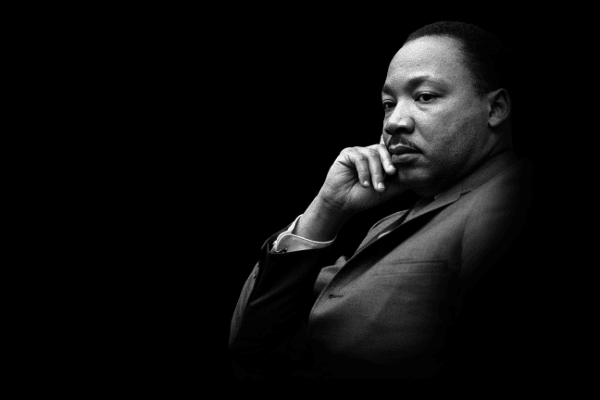"Injustice anywhere is a threat to justice everywhere." - Dr. Martin Luther King Jr.

Ingrained in the minds of every American, young and old, is a gospel of civil and voting rights written by Martin Luther King Jr. Absent in the minds of most Americans is his other gospel for economic justice for all people. MLK’s “Freedom Budget for All Americans” and “Poor People’s Campaign” were cut short when he was assassinated on April 4, 1968.
What should be done on this day and most certainly every day of every month is to reflect on what Martin Luther King truly wanted for this country and what he believed would truly destroy the consequences of American racism: the eradication of poverty and economic opportunity for all.
To understand why Dr. King wanted this other dream fulfilled, we must look back to how the economic and political system of the United States was built on white supremacy and the exploited labor of African Americans. The enslavement of Africans which fueled not only the plantation economy of the South, but also the manufacturing economy of the North had been justified by Enlightenment scholars who, through the study of human skulls, established a racial taxonomy.
German physician and naturalist Johann Friedrich Blumenbach, in his book On the Varieties of Mankind, noted five divisions of humanity based on differences of skull shape and size. In this hierarchy, he put the skull of “Caucasians” on the top. Readers and thinkers who assumed this knowledge would come to posit how white Europeans were intellectually superior to non-whites because their skulls were more beautiful and bigger. Thus, “biological inferiority” would become the explanation as to why Africans were to be enslaved.
This pseudo-science which composed much of the scientific thinking of the Enlightenment would be transported to America and into the mind of the Founding Fathers. From the American Revolution to the end of the Civil War, African Americans were kept in bondage under the power of rich, white plantation owners who would transport cotton and other products into the factories of the North. Even after the passage of the 13th, 14th, and 15th Amendments, African Americans were still under the rule of white elite: the loophole in the 13th Amendment allowed for the Southern criminal and political system to arrest black Americans for the pettiest crimes, creating a lasting legacy of mass incarceration of black people, immigrants, and other minorities.
Black Americans who witnessed this Jim Crow South escaped to the urban neighborhoods of the North where discrimination and inequality still put African Americans on the bottom of the economic hierarchy. African Americans often had the lowest paying jobs and lived in the more impoverished neighborhoods where in the mid 1930s, the federal Home Owners’ Loan Corporation would color-code American cities, using race as a criterion to identify risky investment areas. African American neighborhoods were red-lined and thus black Americans could not receive mortgages.
When white Americans would leave to the suburbs in the mid-1950s and 1960s, African Americans who were systemically put down were left behind in poverty and in despair. Many African Americans and other peoples of color are still in that position and in that emotion.
People can still preach and promote the lessons of love and justice that Dr. King exemplified, but if they do not learn and know the uncensored, unabridged, and full history of the plight of African Americans in this country, then those words, speeches, and prayers will never produce the radical changes that are needed to end the long disease of racism.
The message is clear: the United States must respond to this dark history with a radical transformation that challenges the economic status quo that has divided rich and poor, and white and black. We must realize that the notions of opportunities for all in healthcare, education, jobs, and basic needs are not out of grasp and not out of our realm. When future generations examine our dedication in this fight, we must prove that our dedication does not stop with voting rights and goes on to end all human injustices.

Kommentare